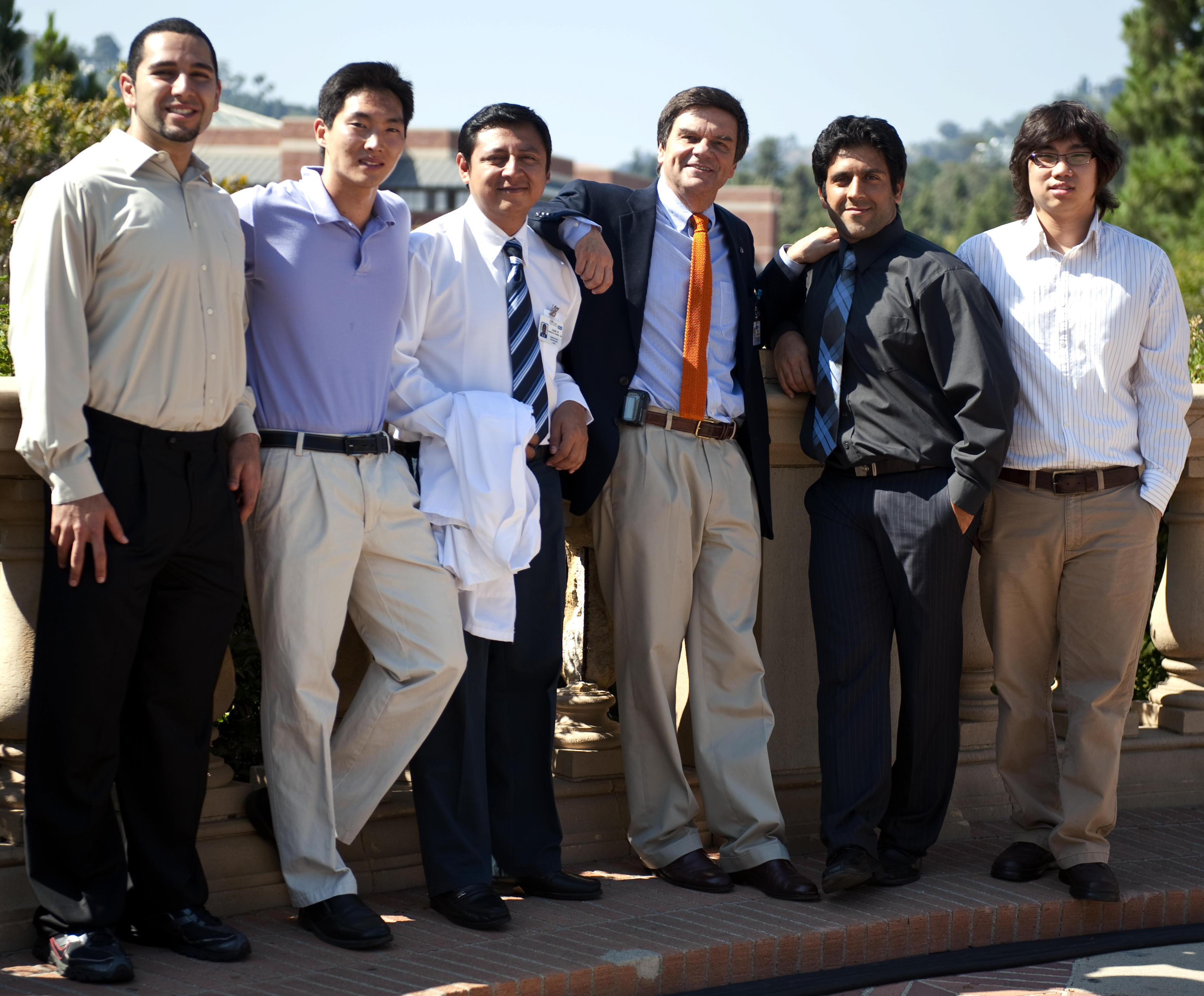Project unites medicine, social work

Members of the UCLA campus group Project Nicaragua work with advisor Dr. Jorge Lazareff (fourth from left), a professor of pediatric neurosurgery, to coordinate projects that set out to improve medical coniditions in Nicaragua and to give students experience with the policy and social aspects of health care.
By Cristina Chang
Aug. 23, 2009 10:53 p.m.
During a June trip with Project Nicaragua, Iman Zahedi, the group’s co-director, interviewed a mother who had just been told that her first-born child would die the next day from spina bifida.
Her voice cracked as she succumbed to tears every few moments, he said. She said that she felt hopeless, having lacked the financial resources to screen the child for the disorder when she was in the womb, he said. The mother didn’t know that a diet rich in folate could likely have prevented the child from getting the disease.
According to Zahedi, he tried to calm the mother, telling her it was all right.
Spina bifida, a disease that prevented the bottom of the child’s spine from closing properly, had also left her with hydrocephalus, a common side-effect. This condition, where cerebral fluid enters and enlarges the head, caused her head to swell to about twice its size.
The next day, Zahedi asked a doctor about the child and learned that she had passed on and her body taken away.
“The trip really opened my eyes to some of the realities of life, “¦ that not every country has the same resources, and the consequences are plain and clear to see when you see it,” said Najib Ussef, the group’s public relations officer, who also participated in the June trip.
For the past five years, Project Nicaragua has been sending teams of volunteers to Nicaragua with the focus of providing care for infants born with spina bifida, with its most recent trip concluding last June. Volunteers from Project Nicaragua like Zahedi and Ussef have been donating medical supplies, conducting research, educating patients and assisting doctors at the government-run El Hospital Antonio Lenin Fonseca and the children’s hospital.
It’s an eye-opening experience that highlights health and economic disparities between developing and developed nations, Ussef added. For example, makeshift wheelchairs are made by attaching lawn chairs with bike tires, he said.
Dr. Jorge Lazareff, UCLA professor of pediatric neurosurgery and Project Nicaragua’s Advisor, said he remembers the group in its inception in May 2004. He said he recalls four medical students, “the founding fathers of Project Nicaragua,” approaching him in his office about their plans to create the group.
Lazareff said he was interested in helping students experience the social aspects of medicine and provided the founders with financial and moral support, as well as using his connections in Nicaragua to find volunteer opportunities.
What resulted is Project Nicaragua, an organization of pre-med undergraduates, economics and sociology majors, and medical students that has since become a registered non-profit with branches at UCSD and Ohio State, and plans to open one at Harvard, said Dr. Ravi Menghani, the current Executive Director of the group. Menghani, a medical student at the time of its founding, was one of the students who first approached Lazareff about creating the group.
The group settled on volunteering in Nicaragua because one of the founding members was half-Nicaraguan, and they all wanted to do medical work at a third world country, Menghani said. During the group’s first trip in December 2004, he said he was inspired by the doctors, who often had to sleep on floors, work 12 hour days, and skip meals, all while operating with the most basic materials.
While the looks of the mothers’ faces were disheartening because they felt hopeless in their situation, it was inspiring to see the children retaining a lot of life, smiling and laughing in spite of their condition, Ussef said. Nevertheless, he said it brought “a tear to his eye” to see children with a disease that can be easily prevented.
Justin Zaghi, who graduated in UCLA last spring and is now working to establish the Harvard chapter, is the co-director for research at the Project. He said he recalls receiving a phone call from a mother the group helped.
She told him, “On behalf of all the children and mothers in Nicaragua, we thank you,” a message he said sent chills down his spine. He also said the trip puts the everyday frustrations from back home in perspective. Worries such as “your ice cream isn’t the right flavor” look trivial in comparison to what the Nicaraguans face, he said.
In their most recent trip last June, volunteers have been conducting research into spina bifida and ways to prevent it from affecting the population, Menghani said. Since spina bifida is present in infants when mothers do not consume enough folic acid, the group is currently looking for cost-efficient ways to improve the people’s diet, he said.
Their trip last June conducted more research into the disorder, and the next big push is to find ways to fortify rice with folic acid, write a research paper, and gain enough scientific credibility to approach non-profits and corporations for support, he added.
Zahedi said he hopes more students join the group. He said that UCLA is currently considering granting students who participate in a trip during the spring or summer two units of research credit.
This is a great opportunity to experience health care in Central America and how the political and health system there works, as well as exploring a different culture, he said. Students will able to choose which area they’d like to help in, whether it’s observing surgeries or conducting research, he added.
CORRECTION: A previous version of this article incorrectly stated the cause of
spina bifida. Spina bifida is a congenital defect related to folate
deficiency during the first trimester of pregnancy.


